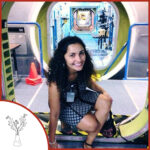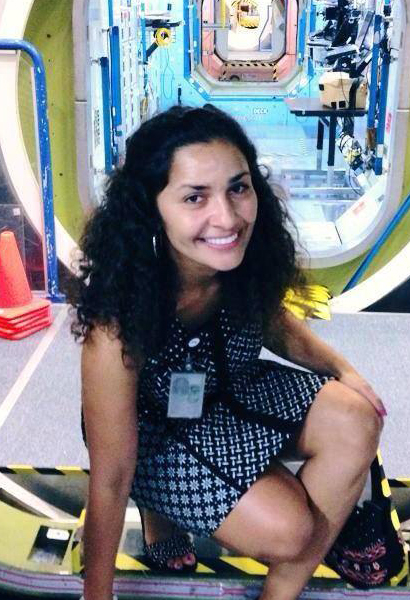

Specialty: Aerospace Engineering
Major Contributions:
Lead systems engineer of team that developed the parachute system used during the landing of Mars Science Laboratory Curiosity
ASEI Woman Engineer of the Year Recipient in 2007
Project Manager of NASA’s Cold Atom Laboratory
Image Via Dr. Anita Sengupta (Facebook)
August 6th marks the anniversary of the successful landing of the Mars Science Laboratory that deployed the rover Curiosity onto the surface of the red planet. Because of the thin atmosphere present, the design of the landing system had to rely on a combination of rockets and a parachute. The team that designed the supersonic parachute used on this mission was led by Dr. Anita Sengupta.
After completing her PhD, Sengupta became a senior technical engineer and contract technical manager for the parachute decelerator system for the Mars Science Laboratory Mission at JPL. The next year she was named a Mars entry, descent, and landing senior systems engineer. After her success with the Mars program, she led projects focused on creating a lander for the exploration of Venus, a concept proposal to obtain a sample of Martian soil and return it to Earth, as well as the Orion Earth Entry Capsule.
In 2012 she was named project manager for the Cold Atom Laboratory, a facility used to study ultra-cold quantum gases in the microgravity environment of the International Space Station. CAL uses lasers to cool matter to temperatures colder than that of space and is designed to be used remotely by scientists at JPL. This lab module is now on board the ISS and has been operating since 2018 as a multi-user facility for the study of quantum matter in microgravity.
Recruited away by Virgin Hyperloop One, Dr. Sengupta joined the team leading the development of an in-vacuum magnetically levitating, electrically propelled high speed transportation system as senior vice president of systems engineering at the company.
In 2020 she became an aviation entrepreneur as founder and CEO of Hydroplane Ltd. using her space exploration skills in the development of hydrogen fuel cell powered aircraft with a goal of decarbonizing aviation within the decade.
An advocate for women and minorities in engineering, Sengupta attends career fairs at middle and high schools to serve as a role model for the next generation. In 2022 she was awarded the Stinson Trophy for two decades as an innovator in the fields of space exploration and aviation.
Written by Angela Goad
Sources:
What It’s Like to Be One of the Few Female Aerospace Engineers
Dr. Anita Sengupta Named Recipient of 2022 Stinson Trophy
See Also:
